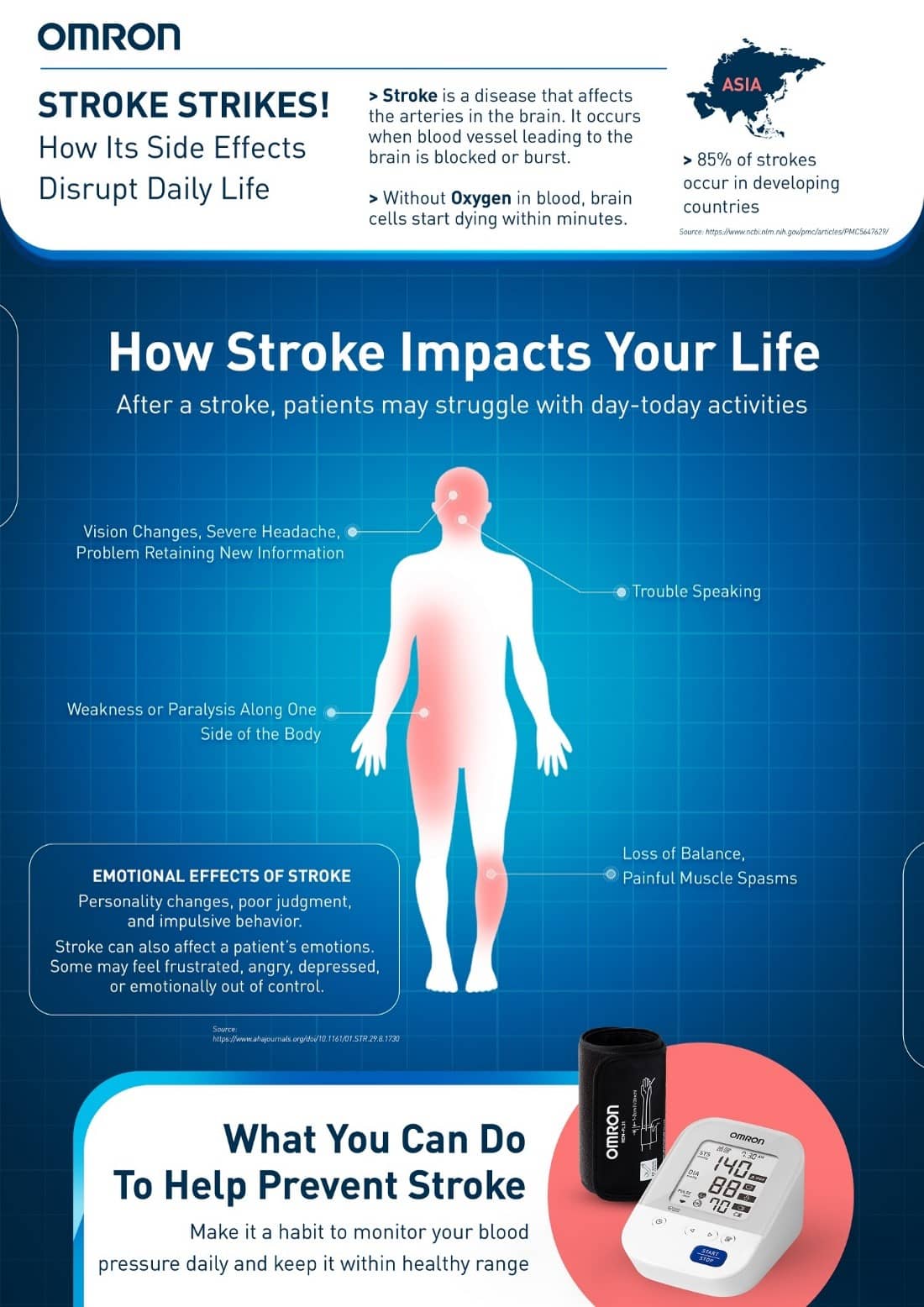Stroke can derail your life plans but there are ways to detect & manage your risk early.
This article has been medically reviewed by Dr. Gilbert C. Vilela, PSB of Cardiology | President, Philippine Heart Association 2022 | Department of Education, Philippine Heart Center.
Do you know someone who suffered the consequences of a stroke? Did you know that even you, in your prime years, are also at risk for it?
What Is Stroke
Stroke is a disease that affects the arteries in the brain. High blood pressure is one of the biggest stroke risk factors. It strains all the blood vessels in your body, including the ones leading to your brain. Without the oxygen in blood, brain cells start dying within minutes. Stroke often leaves its survivors with severe disabilities that cause emotional and economic difficulties for both patients and their families.
Stroke In Asia
Stroke is the primary cause of disability and vascular death worldwide. But the burden of it is particularly serious in Asia where
its mortality is higher than in Europe or the Americas.
Most research on stroke prevention and treatment is done in developed countries, yet more than 85% of strokes occur in developing countries. A
recent systematic review of trends in global stroke incidence over the past four decades has reported a 42% reduction in developed countries and an alarming 100% increase in developing countries. Yet
risk factors such as hypertension, diabetes, obesity, and cigarette smoking are prevalent, and are poorly controlled in the Asia Pacific Region.
 How Stroke Impacts Your Life
How Stroke Impacts Your Life
After a stroke, patients may struggle with day-to-day activities such as eating or swallowing, feeding, bathing, dressing, grooming, toileting, mobility, and sexual activity. Some could also have weakness or paralysis along one side of their body, painful muscle spasms, vision changes, constant pain, poor balance, or a loss of fine motor skills.
Mental changes also arise after a stroke. Patients could have trouble speaking, understanding speech, remembering recent events, or learning and retaining new information. Some also experience personality changes, poor judgment, and impulsive behavior. Stroke can also affect a patient’s emotions. Some may feel frustrated, angry, depressed, or emotionally out of control. These struggles conjured together impact patients' lives in many negative ways, from their daily activities, to their everyday jobs, and may even be the cause of strain on their relationships.
What You Can Do To Help Prevent Stroke
High blood pressure (BP) is the biggest contributor to the risk of stroke, doubling or even quadrupling your risk if it is not controlled. But stroke can be predicted and prevented if a person's BP status is appropriately monitored. So make it a habit to monitor your BP daily, keep your figures within the healthy range.
Make the first step now to measure your BP.
Check out the
BP monitors by OMRON to stay on top of your heart health.


